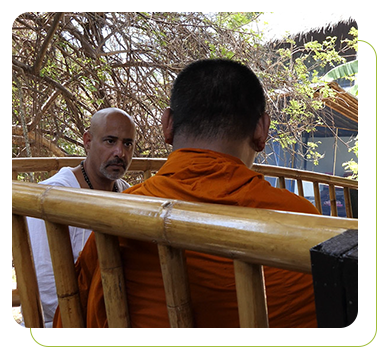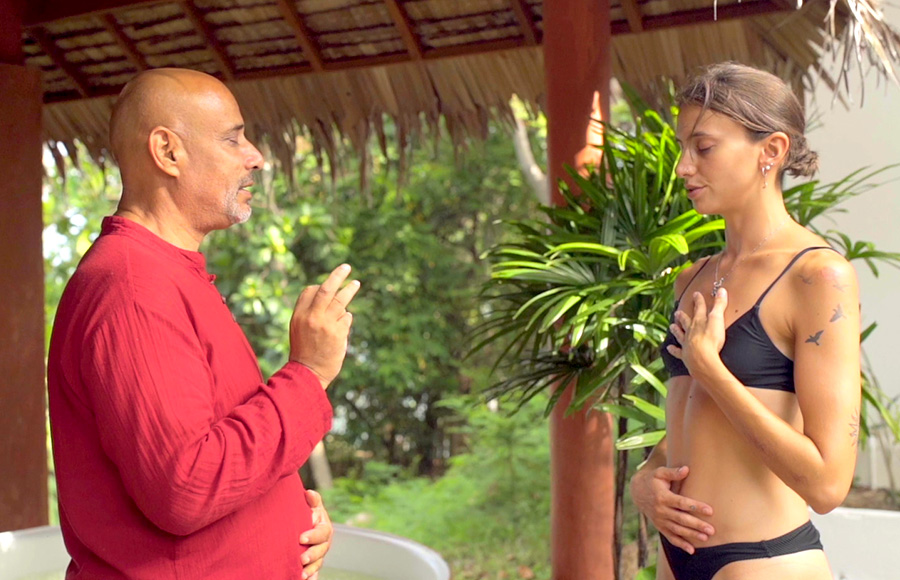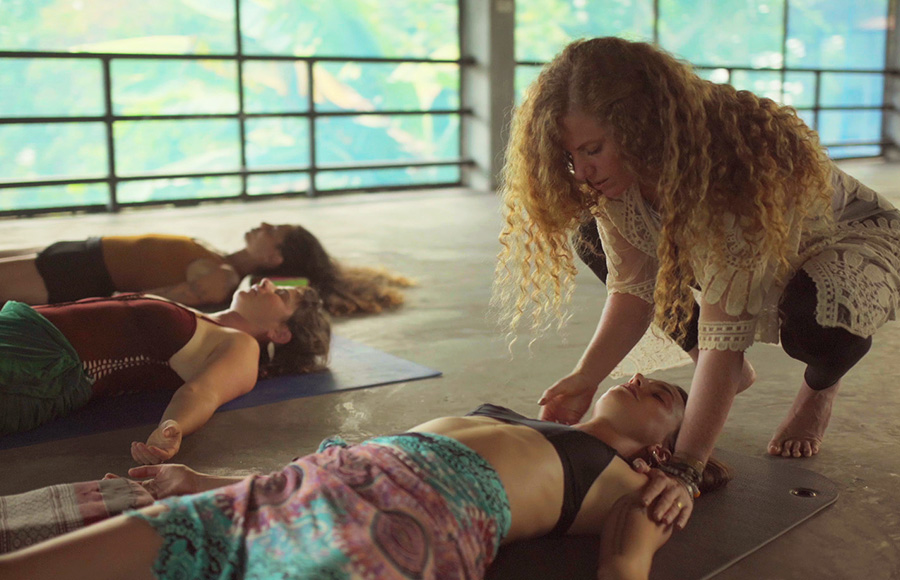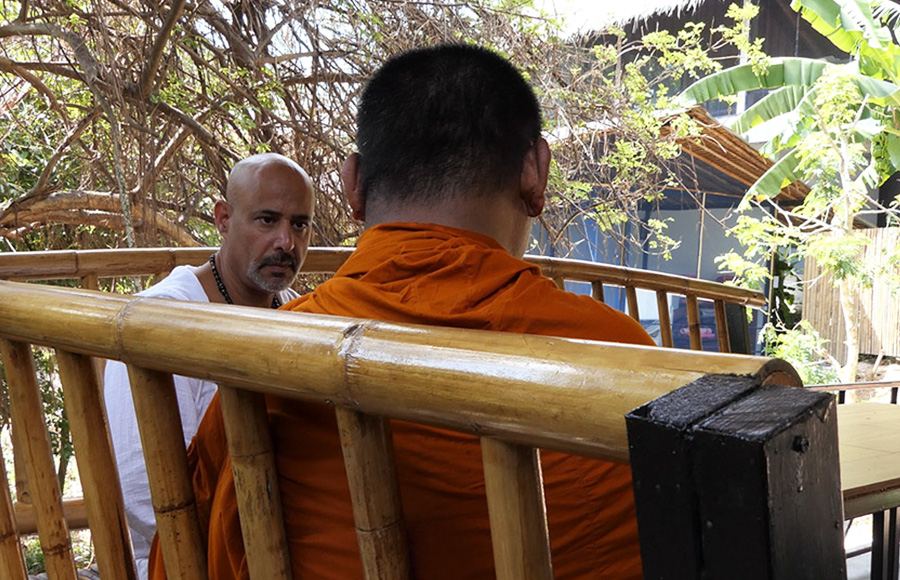From Shame to Self-Worth: Reclaiming Your Identity in Recovery
05 min read

The Weight You Were Never Meant to Carry
Shame is one of the heaviest emotions in addiction.
It whispers that you are broken, unworthy, unlovable — that no matter how much you change, the damage is permanent.
But shame lies.
At Holina Rehab Thailand, we see shame not as truth, but as trauma — an emotional scar that can be healed through compassion, honesty, and connection.
Because recovery isn’t only about sobriety. It’s about remembering your worth.
When shame fades, what remains is not who you were — but who you truly are.
Understanding Shame: The Silent Root of Addiction
Addiction and shame feed each other.
Shame fuels the need to escape, and escape fuels more shame.
It’s a cycle that keeps people trapped:
Feel unworthy → use substances to cope → feel guilt → deepen unworthiness.
For many, shame began long before addiction — in childhood, in trauma, in feeling unseen or “not enough.”
Addiction didn’t create the shame. It only magnified it.
At Holina, we help clients break this cycle by shining light on what shame tries to hide — the simple truth that pain doesn’t make you bad. It makes you human.
The Difference Between Guilt and Shame
Guilt says, “I did something wrong.”
Shame says, “I am something wrong.”
That distinction matters.
Guilt can lead to growth. It acknowledges actions and inspires change.
Shame, on the other hand, paralyzes. It attacks identity.
Healing requires shifting from shame to responsibility — from self-punishment to self-understanding.
This is one of the central teachings at Holina: accountability with compassion, honesty without humiliation.
How Shame Shapes Identity
Over time, shame becomes a lens — coloring everything you see about yourself.
It convinces you that mistakes define you, that failure is permanent, that love must be earned.
In addiction, this often leads to isolation and self-sabotage. People withdraw from connection because they believe they don’t deserve it.
But the truth is the opposite:
Shame thrives in secrecy.
Healing thrives in openness.
At Holina, every story — no matter how painful — is met with empathy.
The moment you share what shame told you to hide, it begins to lose its power.

The Holina Approach: Healing Shame with Compassion
Shame cannot be healed through judgment — only through love.
At Holina Rehab Thailand, we use a trauma-informed, heart-centered approach to address shame:
Therapy: Exploring where shame began, not just what it says.
Group work: Building empathy by realizing others have carried the same pain.
Inner child healing: Meeting younger parts of yourself with care.
Somatic therapy: Releasing shame held in the body.
Mindfulness and meditation: Observing self-critical thoughts without believing them.
These practices help clients rebuild trust in themselves — step by gentle step.
“For years, I hated who I was. Holina showed me that I was never bad — just hurting.”
— Holina graduate, UK
The Science of Shame and Healing
Neuroscience confirms what compassion has always known: shame is a biological stress response.
It activates the amygdala (fear center) and suppresses the prefrontal cortex (reason and empathy).
That’s why when you feel shame, you can’t think clearly — you feel trapped, defensive, or hopeless.
Healing shame requires calming the nervous system.
Through mindfulness, breathwork, and body awareness, clients learn to regulate emotions safely.
As the body relaxes, the brain begins to process truth: you are not the problem — shame is.
This shift reawakens the capacity for joy, connection, and self-respect.
Letting Go of the “Addict” Identity
One of the biggest blocks to self-worth in recovery is identity.
People often internalize the label “addict” — seeing themselves only through the lens of what went wrong.
At Holina, we honor addiction as part of your story, not your definition.
We encourage clients to use language that reflects growth:
“I am in recovery.”
“I am healing.”
“I am learning to love myself.”
Identity shifts are powerful.
When you stop calling yourself broken, you stop living like you are.
Reclaiming Your True Identity
Beyond the stories of pain and survival lies your true self — the part untouched by addiction, shame, or trauma.
Holina helps clients reconnect to this essence through mindfulness, creativity, and spiritual practice.
We ask: Who were you before the pain? What lights you up? What gives your life meaning now?
Through therapy, journaling, and group reflection, clients begin to rediscover qualities long forgotten — kindness, humor, empathy, strength.
Reclaiming identity is not about inventing a new you.
It’s about remembering the one you lost along the way.
“I thought I needed to become someone different. I just needed to come back to myself.”
— Holina alumni, Singapore
The Power of Vulnerability
Vulnerability is the antidote to shame.
It’s the act of showing up as you are — even when you’re afraid you’re not enough.
In group sessions at Holina, clients share their stories and realize something profound: everyone has carried shame. Everyone has fallen and gotten back up.
That shared honesty dissolves isolation.
Vulnerability turns shame into connection.
And connection turns pain into strength.

Self-Compassion: The Key to Healing Shame
Many people in recovery are compassionate toward others but merciless toward themselves.
They forgive easily outwardly but struggle to extend that same grace inward.
At Holina, we teach self-compassion as a daily practice.
Through mindfulness, affirmations, and reflection, clients learn to replace self-criticism with care.
A powerful exercise used in our mindfulness program:
Place a hand over your heart.
Take a breath.
Say, “I’m doing the best I can.”
It’s simple. But for many, it’s revolutionary.
Because healing begins when you finally become kind to yourself.
The Role of Spirituality in Rebuilding Worth
Spiritual practice — whether through meditation, prayer, or nature — helps clients experience self-worth beyond the ego.
When you touch something larger than yourself, you realize your inherent value — not because of what you do, but because you are.
Holina’s spiritual programs remind clients that worthiness isn’t earned through achievement, sobriety, or perfection.
It’s innate.
It was there before the pain and remains beneath it.
Shame says, “You are not enough.”
Spirit whispers, “You always were.”
Healing the Body from Shame
Shame isn’t only emotional — it’s physical.
It lives in the body: in the slumped shoulders, the tight chest, the shallow breath.
Holina’s somatic therapy helps clients release shame through movement, yoga, and conscious breathing.
As the body opens, so does the heart.
This embodied healing teaches that worth is not an idea to believe in — it’s a feeling to inhabit.
When clients begin to stand tall, look others in the eye, and breathe freely again, self-worth stops being theory and starts being truth.

Relationships and Worthiness
Shame often leads to unhealthy relationship patterns — over-giving, people-pleasing, or withdrawing.
At Holina, clients learn to build relationships based on equality, not guilt.
Therapists guide clients to understand that love is not something to earn — it’s something to receive.
Through family therapy and group sharing, they practice boundaries, honesty, and trust.
As worth grows, relationships transform.
They shift from needing approval to sharing authenticity.
Self-Worth as Relapse Prevention
Shame is one of the strongest relapse triggers.
When people feel unworthy, they often turn back to substances to numb that pain.
By contrast, self-worth creates resilience.
When clients believe they deserve healing, they protect it.
When they believe they are lovable, they no longer seek escape from themselves.
That’s why at Holina, building self-worth isn’t just emotional work — it’s survival work.
Daily Practices to Cultivate Self-Worth
Gratitude Journaling: Write three things you appreciate about yourself daily.
Mirror Affirmations: Look into your eyes and say, “I forgive you. I love you. I’m proud of you.”
Mindful Awareness: Notice negative self-talk and gently replace it with truth.
Acts of Service: Helping others reinforces the truth that you are valuable.
Boundaries: Saying no when needed honors your worth.
These practices turn worthiness into a lived experience, not just an idea.
Stories of Transformation
“I used to think I was my mistakes. Now I know I’m my recovery.”
— Holina graduate, UK
“Shame told me I wasn’t good enough. Holina taught me I already was.”
— Holina client, Germany
“When I found compassion for myself, everything changed. I stopped surviving and started living.”
— Holina alumni, Australia
Each story reflects the same truth: healing begins where shame ends.
FAQs About Shame and Self-Worth at Holina Rehab
Q1: What if I can’t forgive myself?
That’s okay. Forgiveness is a process. We’ll walk with you until you can see yourself with gentler eyes.
Q2: How does Holina address shame in treatment?
Through therapy, mindfulness, bodywork, and community — allowing clients to process and release shame safely.
Q3: What if I don’t feel worthy of recovery?
We start there. Worth isn’t a prerequisite for healing — it’s the result of it.
Q4: Can self-worth really prevent relapse?
Yes. When people value themselves, they protect their healing and make choices that honor it.
Q5: How long does it take to rebuild self-worth?
It’s ongoing. But every act of honesty, compassion, and courage grows it stronger.
Conclusion: You Were Never Broken
Shame says you’re unworthy.
Healing says you’re whole.
Recovery isn’t about earning forgiveness — it’s about reclaiming your inherent worth.
At Holina Rehab Thailand, we witness this transformation daily: people arriving burdened by shame and leaving with light in their eyes — remembering that they were never broken, only forgotten.
Because the truth is simple:
You don’t have to become someone new.
You just have to remember who you are.
Begin your healing journey with Holina today.
Get back to yourself — whole, worthy, and free.
About Me
Ian Young
Ian Young is the Global Manager at Holina Care Centres in Koh Phangan, Thailand. Ian oversees the rehabilitation programs that blend the 12 Step model, Psychology, Counselling, Coaching, Somatic and many other therapeutic engagements, alongside various evidence-based therapies with holistic healing practices. Holina Rehab treats addictions, trauma, anxiety, depression, and other emotional challenges, offering comprehensive care in a serene resort environment. Ian, a charismatic speaker and author of “It’s Not About Me” leveraging his own recovery journey from addiction to inspire and guide others toward a fulfilling, addiction-free life.
Recent Blogs
-
29 Jan, 2026
The Ultimate Guide to 12-Step Rehab in Thailand





























